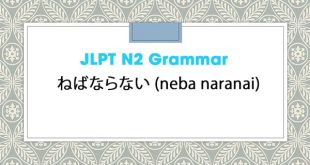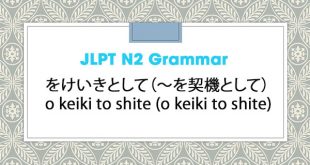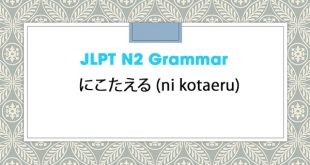に相違ない (ni soui nai)
Meaning: without a doubt; certain; sure
How to use the:
Verb-casual + に相違ない
Noun + (である)に相違ない
いadj + に相違ない
なadj + (である)に相違ない
Example sentences:
1, 犯人はあの男に相違ない
Han’nin wa ano otoko ni soui nai
The criminal must be that man
2, ひとたび支配権を握ったら、連中は農民に与えた土地そのほかについての約束を覆すに相違ない。
hitotabi shihaiken o nigittara, renchuu wa noumin ni ataeta tochi sono hoka ni tsuite no yakusoku o kutsugaesu ni soui nai.
They will repudiate their promises of land and other benefits to the peasants once they have seized control.
3, 彼女は3日前に家を出だまま帰ってこない。きっと田舎へ行ったにそういない。
Kanojo wa 3-nichi mae ni ie o deda mama kaettekonai. Kitto inaka e itta ni soui nai.
She had been away since 3 days ago, she still hasn’t come back, she should be back home
4, この地域の水汚染の問題を解決するのは難しいに相違ない。
kono chiiki no mizu osen no mondai o kaiketsu suru nowa muzukashii ni soui nai.
Solving this area’s water pollution problem must be difficult.
5, これを知ったら、彼はきっと烈火のごとく怒り出すに相違ない。
Kore o shittara, kare wa kitto rekka nogotoku ikaridasu ni soui nai.
Knowing this, he must be angry like a fiery fire.
6, 誰だろう。廊下をしずかに歩いているのだ。何ごとか企てているのに相違ない!
dare darou. rouka o shizuka ni aruite iru no da. nanigoto ka kuwadatete iru no ni soui nai.
Who is it? Someone’s walking quietly in the corridor. They must be plotting something.
 Learn Japanese Free Learn Japanese Free
Learn Japanese Free Learn Japanese Free







